Should a bedroom be light or dark? Experts reveal the colour code to follow for serene styling and better sleep
How to choose the right option for your boudoir

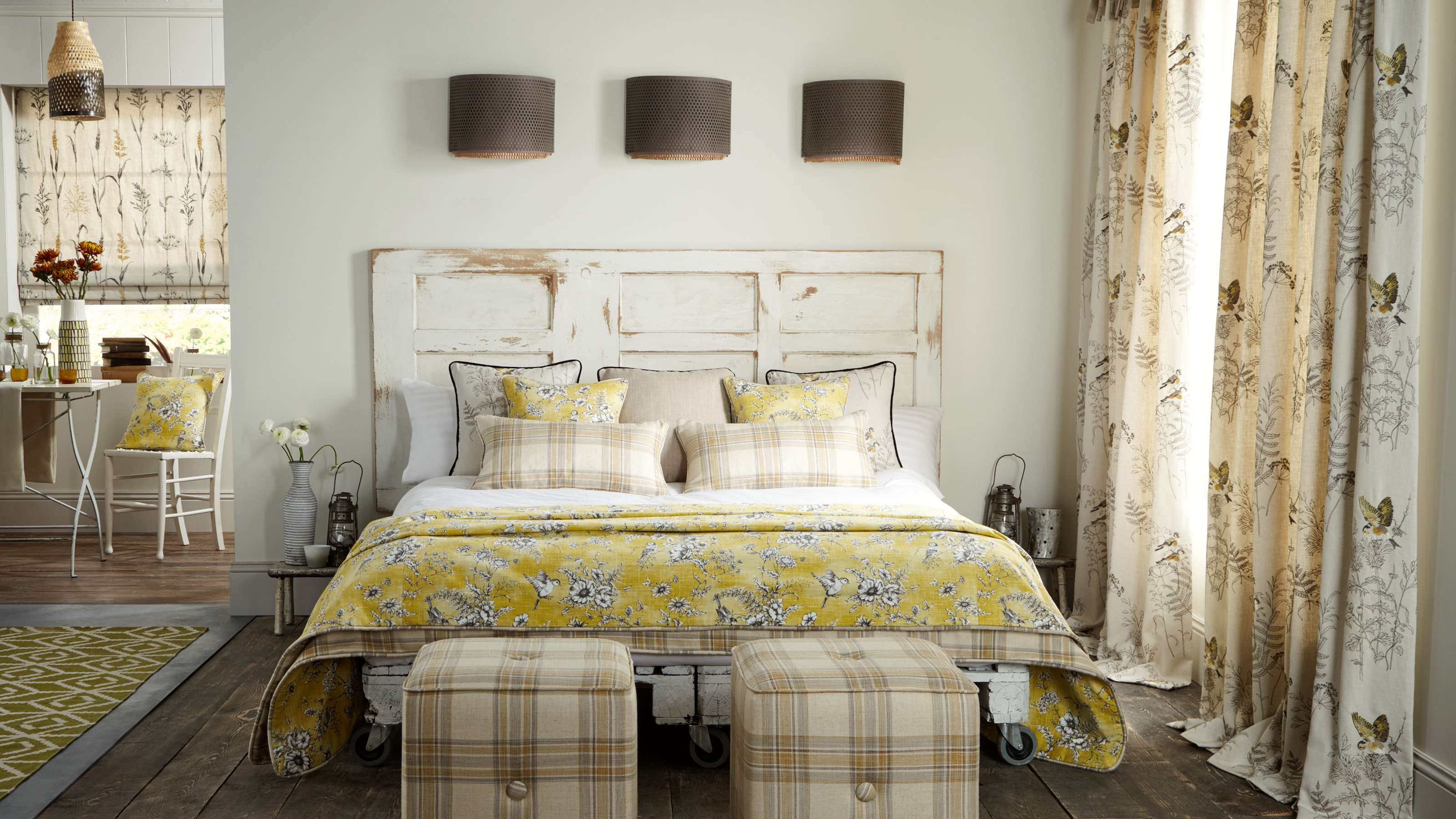

It's a battle played out across the country – should a bedroom be light or dark to help you sleep better and wake up feeling refreshed and energised for the day ahead?
The easy answer is 'dark' – our body clock is governed by daylight, so the brighter a room, the more awake we feel. But don't immediately dash to change your bedroom decor to the darkest colour you can find.
The colour of your bedroom can have an impact on how well you sleep or the way you feel when you wake up, especially if you want some design tricks to become a morning person, or you're a night owl who wants to get to sleep faster. But you can use window treatments, bedroom lighting ideas and even mood-boosting colour psychology to 'trick' your body into dark mode, even if your bedroom is a pure white sanctuary.
We spoke to interior designers to find out more, but first, we checked in with a sleep coach to get the scientist's view on whether a bedroom should be light or dark.
Should a bedroom be light or dark?
First, we need to define whether it's the amount of natural or artificial light in a room that has an impact, the decor, or both. For sleep science coach Anne Marie Boyhan, while colour is important, it's the amount of light that's the key factor.
'Light is hugely influential for sleep. Research has shown that light regulates sleep timing and sleepiness or alertness during the day,' she says. 'Other studies show how light affects our circadian rhythms, sleep and mood so getting light at the "right" time is crucial for good sleep quality and overall wellbeing.'
'Getting light within one hour of waking sets us up for positive sleep in the evenings and we can aim to get certain ‘cues’ to boost this, such as watching a sunrise, heading outside for 15 minutes in the mornings, or in winter, looking at a SAD lamp which gives us the correct dosage of light needed.'
Sign up to our newsletter for style inspiration, real homes, project and garden advice and shopping know-how
Anne Marie recommends flooding our bedrooms with light first thing in the morning, by pulling back the curtains or blinds.
'In the evenings, we want to reduce the light in our lives as light disrupts the production of melatonin, which is needed for sleep and starts being produced in the evening time. Cues that help this include watching a sunset, using candlelight or soft lighting after 7pm, and avoiding harsh lights in our bedroom,' Anne Marie says.
Once you have the lighting at the correct intensity, you can make simple decor switches to enhance the effect, making your bedroom 'light' or 'dark', even if they're decorated in a colour that tells you otherwise. Here's how the designers do it…

Anne Marie is a certified sleep science coach and Functional Diagnostic Nutrition Practitioner. She is founder of The Sleep Care Co. and created The Insomnia Solution Program to help people sleep through the night and start living again.
1. Choose a dark palette for intimacy
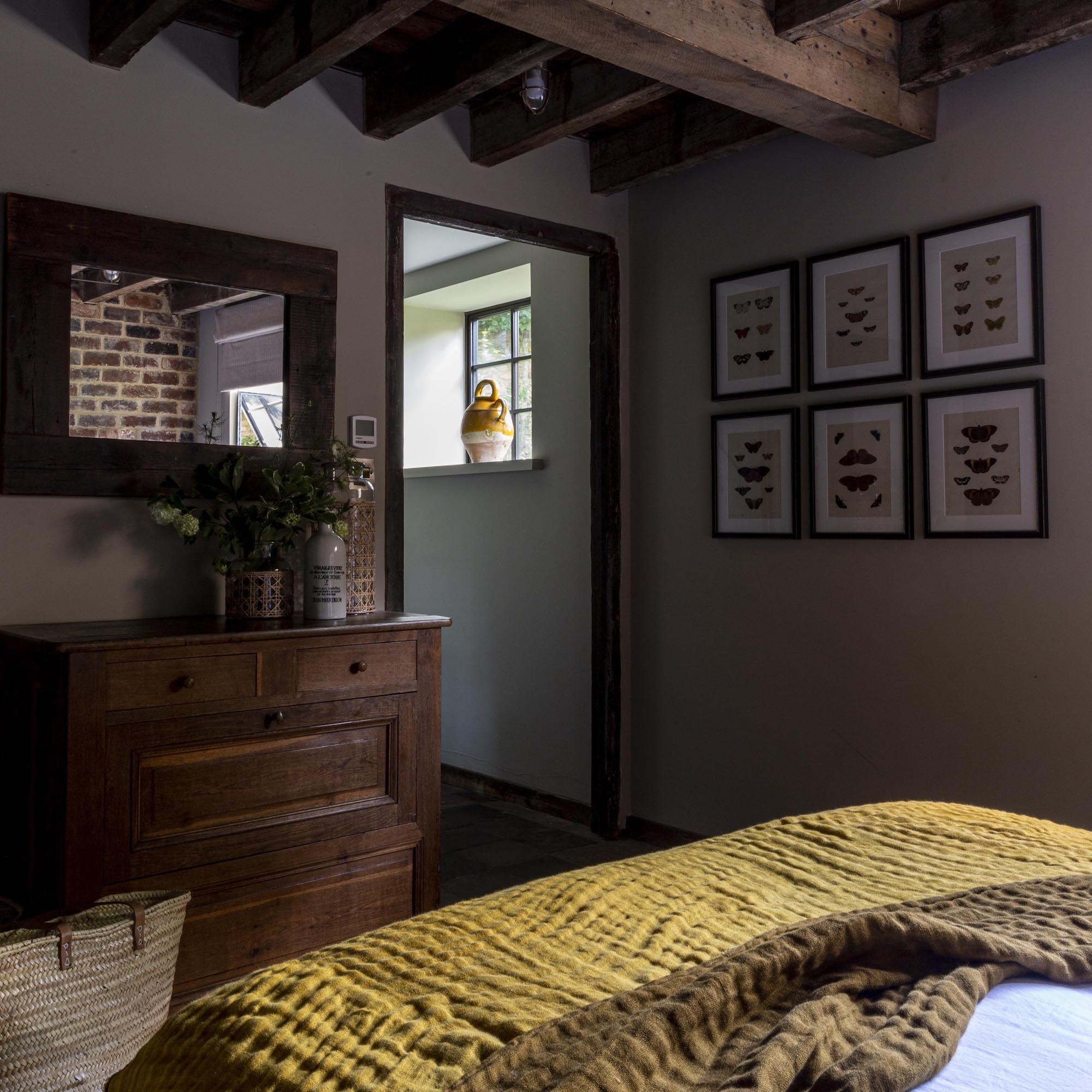
'Darker tones offer a cosy, intimate atmosphere that promotes sleep and a sense of sanctuary, ideal for unwinding after a long day. Deep blues, rich greens and charcoal greys can create a cocoon-like effect, making the bedroom feel like an escape from the bustle of everyday life,' suggests Cotswold-based interior designer Lauren Gilberthorpe.
Chipping in with another moody colour suggestion is interior designer Benji Lewis. 'Mocha or bitter chocolate is a great colour, definitely a good one for a dark bedroom and more interesting than black,' he says. 'If you fear it’s too much, paint the ceiling and woodwork white and lay an ivory carpet on the floor.'
Sleep coach Anne Marie Boyhan has created The Colour of Sleep palette with Dulux to help people find the colours that suit their taste, their sleep style and their psychological wellbeing.
'In our bedrooms, we can use bright colours and a palette that encourages warmth, hop, and optimism. Mid-tone shades can create spaces that are soft and soothing, or a little more punchy and empowering,' she says.
2. Pick dark if your room is already shady
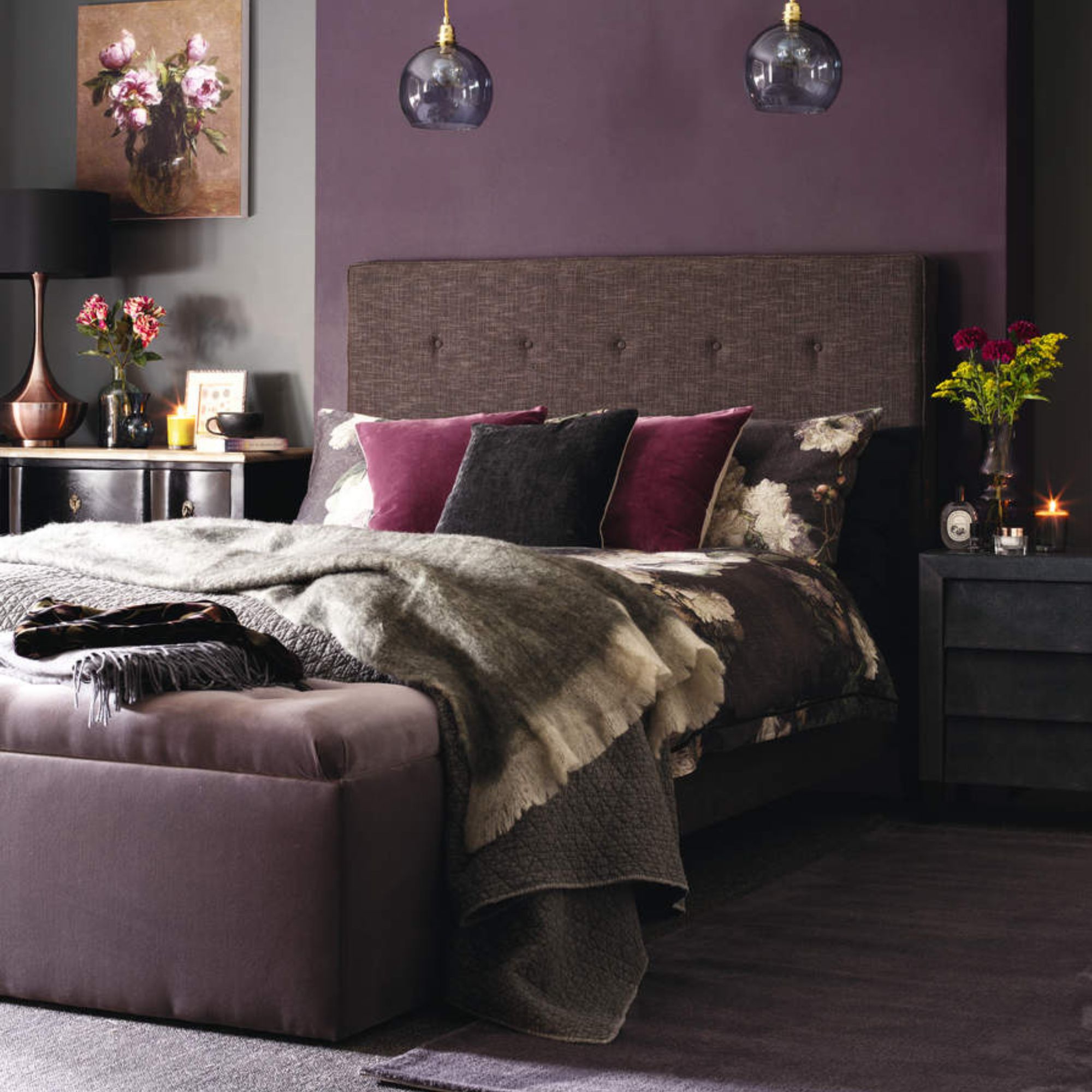
Continuing on his love for a dark bedroom colour scheme, Benji Lewis says it's the way to go if your room is already lacking in natural light.
'There’s no hard and fast rule for whether your bedroom is dark or light. I do, however, have a thing that if a room is naturally dark then instead of fighting it, go with moody and look at deep tones instead of bright and light,' he says. 'Given what we generally have to put up with weather-wise, there’s a lot to be said for going dark and cosy with your bedroom thoughts.'
As well as paint or patterned wallpaper, Benji suggests using a textural finish such as grasscloth for walls, which adds depth and drama to the already dusky colour scheme.
3. Use lighting the smart way
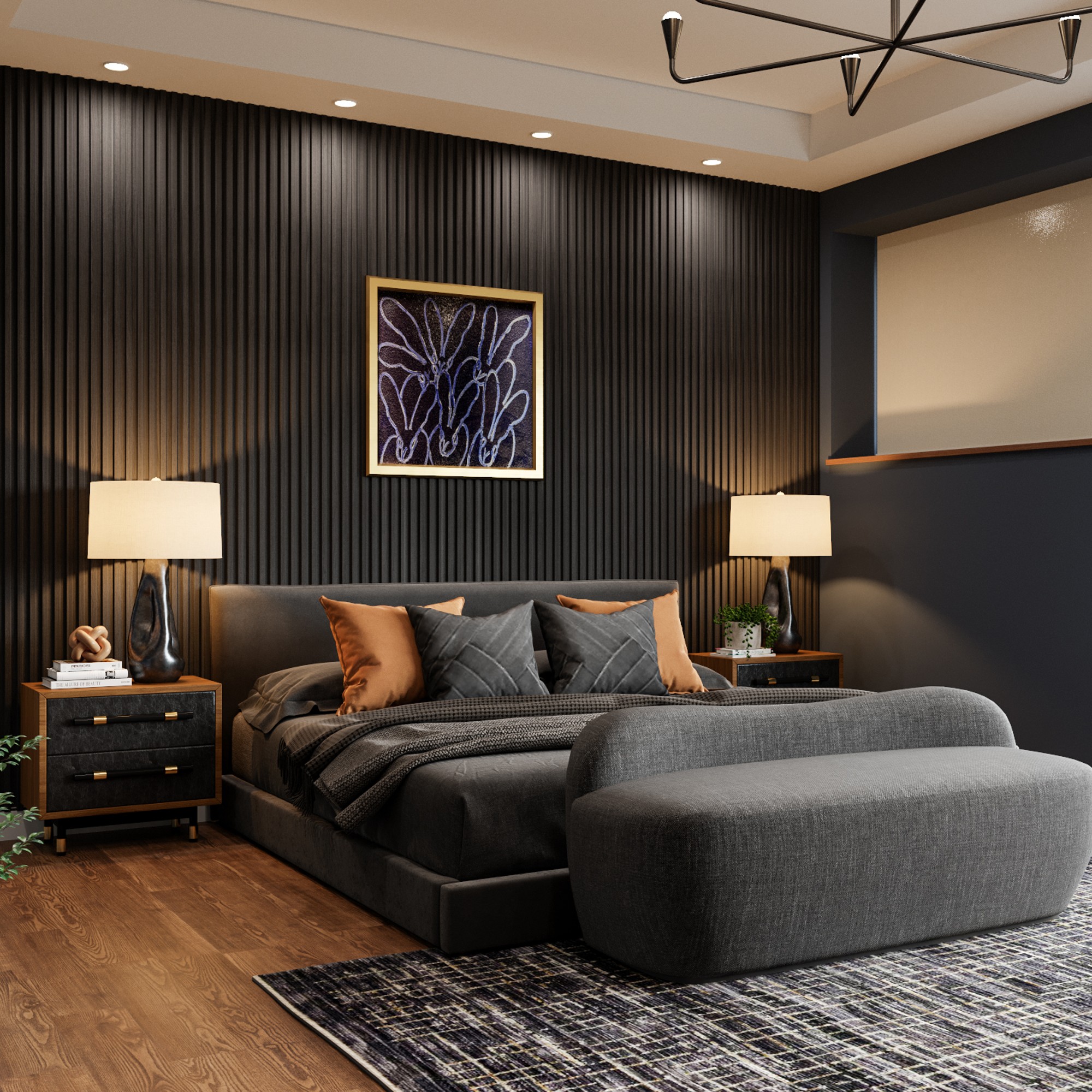
Even if we prefer a dark and moody bedroom, we need a certain amount of illumination for dressing, reading and other activities – especially if your bedroom also doubles up as a home office. This is where the type of lighting we choose makes an impact.
'It's best to avoid harsh lights in our bedroom. Artificial light can impact sleep quality, so opt for amber light bulbs or red light bulbs to counteract this. Blue light and artificial lights disrupt the production of melatonin so we want to avoid these in the evenings,' explains sleep coach Anne Marie Boyhan.
'Covering lights on appliances such as radios and alarm clocks with electrical tape is also a hack I use. If I'm holidaying in a hotel and the light creeps in from under the door, I use a towel to block this,' she continues.
Layering your lighting and having a number of different sources of illumination is also key.
'To prevent dark rooms from feeling too enclosed, clever lighting is essential,' says interior designer Lauren Gilberthorpe. 'Use a combination of ambient, task and accent lighting to create zones for key activities, such as reading or dressing.
'My go-to with both light and dark rooms is to incorporate dimmable lighting as it has the biggest impact on how a room feels.'

Based in Devon and the Cotswolds, Lauren is the founder and creative driving force behind her eponymous interior design company. She specialises in a layered approach that combines textiles, colour and artworks.
4. Go light in a small bedroom
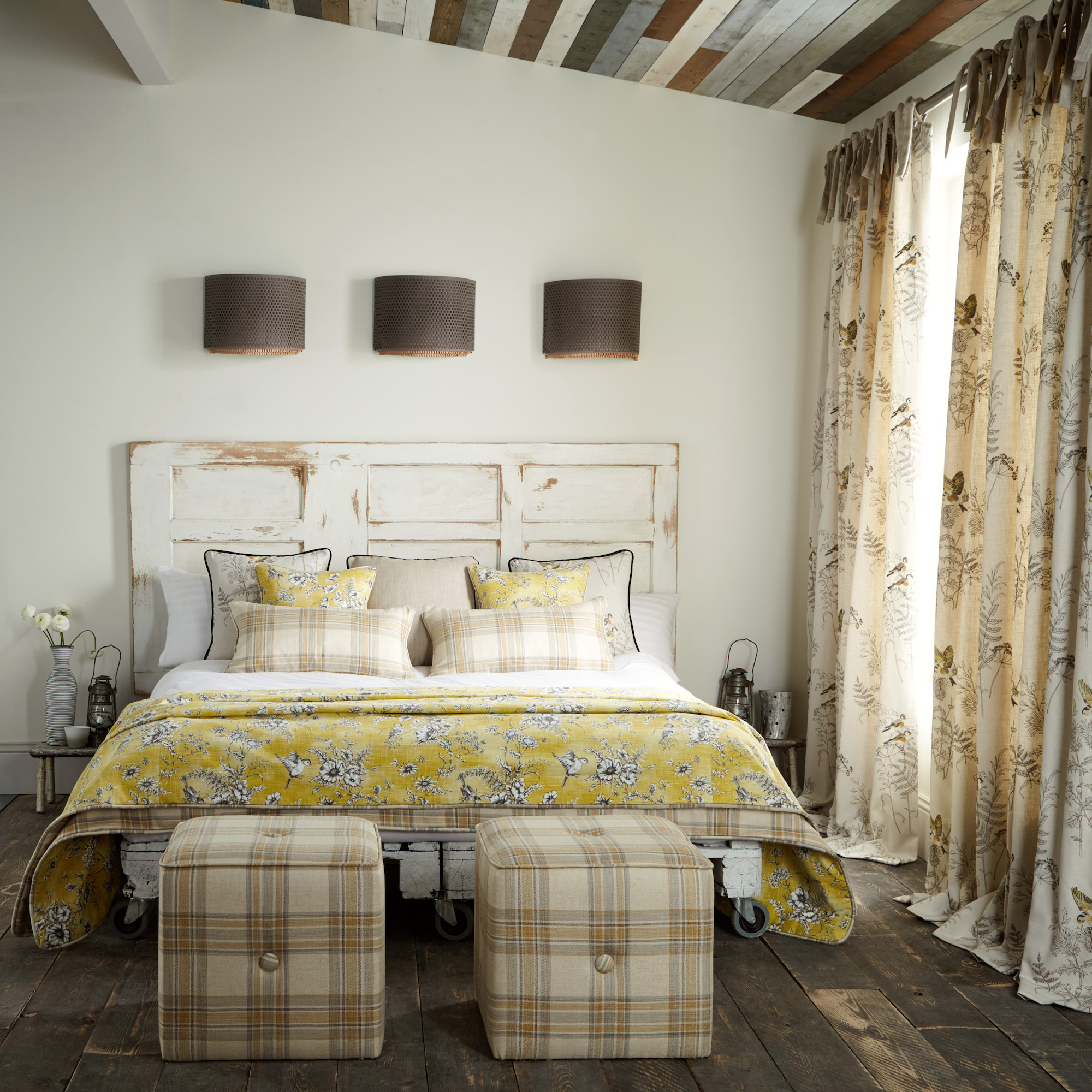
You could opt for a dark colour scheme in a small bedroom, but there's a risk it could feel cave-like rather than cosy.
'The choice between a light or dark colour scheme for a bedroom comes down to several factors including personal preference, the size of the room and the amount of natural light,' explains Debbie Leigh, design manager at ILIV.
'Lighter colours may be preferred for smaller bedroom as they generally make a room feel larger and will reflect any natural light, making the space feel bright and inviting. A dark colour scheme will absorb more light, which can potentially make the room feel too dim or enclosed. To balance this out, ensure you have plenty of good lighting,'
5. Block light with window treatments
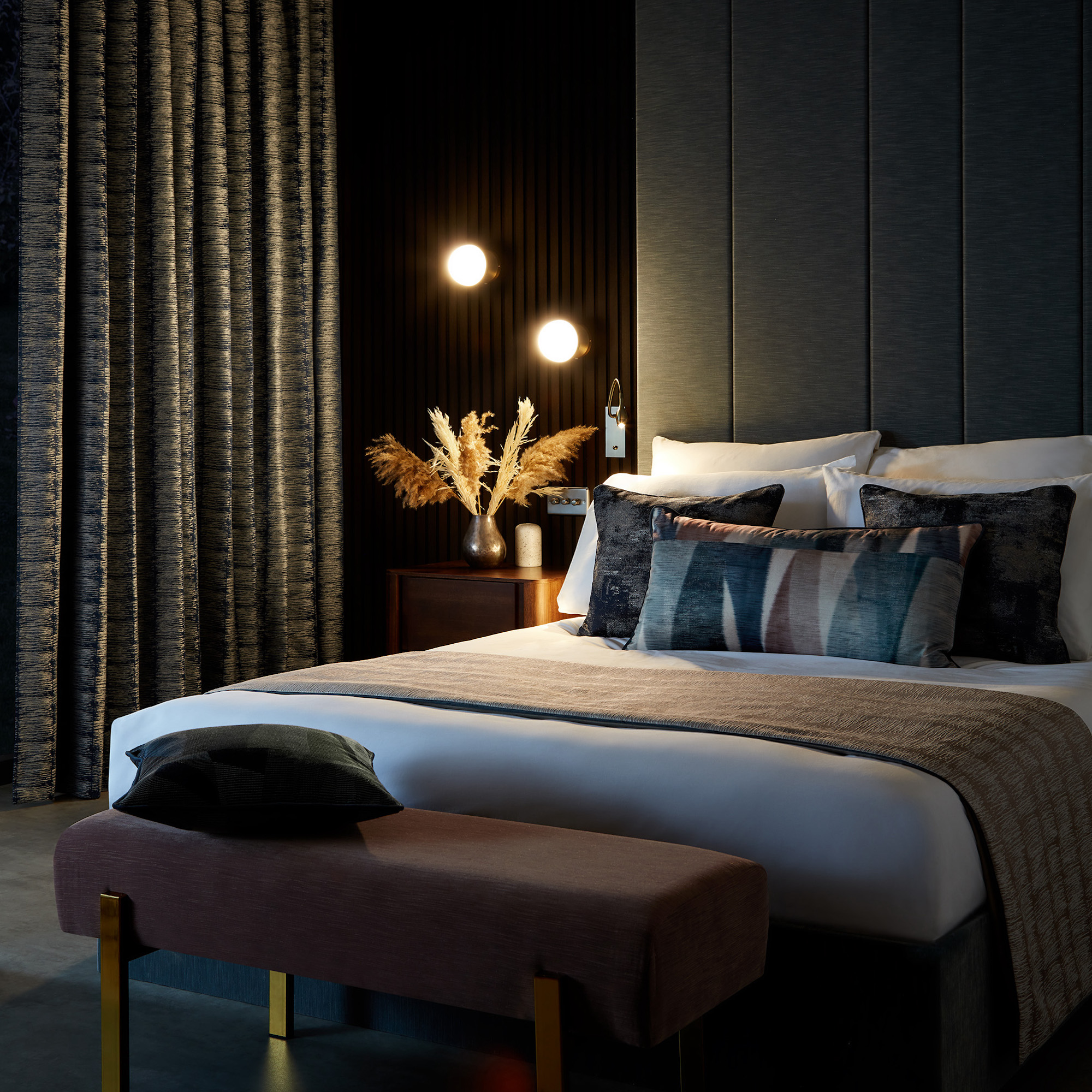
If you love a light bedroom but need a darkened room to sleep properly, then blackout window treatments are your best friend. Available in a multitude of colours and patterns, blackout curtains and blinds will allow you to decorate your bedroom in a style you love, then transform it into a sleep sanctuary at night.
'In a lighter bedroom, you may wish to consider blackout window treatments to create a darker environment for sleeping. Black out curtains or blinds will also help to keep the room warmer in winter and cooler in summer, as well as providing complete privacy,' says Debbie Leigh at ILIV.
Sleep coach Anne Marie Boyhan is also a fan of blackout window treatments, but does have a low-tech option if new curtains or blinds aren't on your radar right now.
'To sleep, ideally you shouldn't be able to see your hand in front of your face so getting your room as dark as possible is the goal,' she says. 'In our bedrooms, you want to block out all light from entering so that it doesn't disrupt your sleep so if you don't have blackout curtains or blinds, then wear a sleep mask.'
So there is the answer. Your bedroom can be decorated in either light or dark colours, as long as you can block out artificial or natural light when you want to sleep. Night, night.

Andrea began her journalism career at Ideal Home and is currently Editor of our sister title, Country Homes & Interiors, which celebrates modern country style. Andrea is passionate about colour and how it can transform both our homes and our sense of wellbeing, and has completed The Power of Colour course with the prestigious KLC School of Design. Andrea's career spans interiors magazines, women's lifestyle titles and newspapers. After her first job at Ideal Home, she moved on to women's magazines, Options and Frank. From there it was on to the launch of Red magazine, where she stayed for 10 years and became Assistant Editor. She then shifted into freelancing, and spent 14 years writing for everyone from The Telegraph to The Sunday Times, Livingetc, Stylist and Woman & Home. She was then offered the job as Editor of Country Homes & Interiors, and now combines that role with writing for idealhome.co.uk.